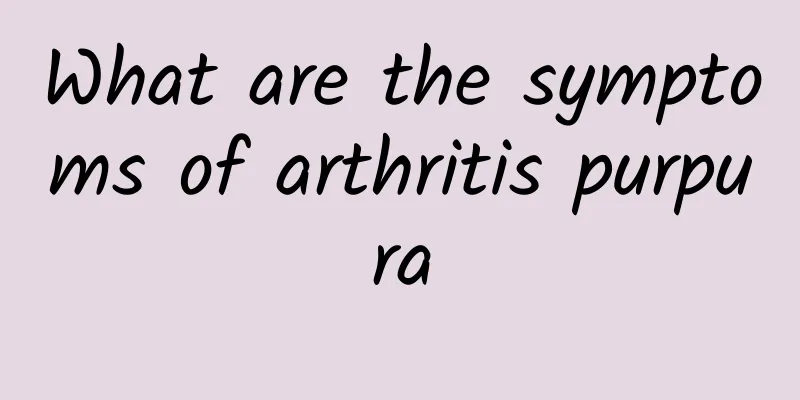The difference between cold sweat and sweat

|
Cold sweat and spontaneous sweat are both manifestations of our body's metabolism. However, the causes of cold sweats and spontaneous sweats are different. Generally speaking, cold sweats are more caused by psychological reasons, while night sweats are more caused by physical weakness or illness. Not only do cold sweats and spontaneous sweats have different causes, they also reflect different physiological processes. Today we will look at the difference between cold sweats and spontaneous sweats. Refers to fear of cold, cold limbs and sweating. There is no fever or thirst before sweating, and the patient is often accompanied by symptoms of cold such as lack of energy, pale complexion, loose stools, clear and long urine, slow and deep pulse, and pale tongue. Causes Cold sweat It refers to the feeling of coldness caused by sweating due to tension, fear or illness. There is no fever or thirst before sweating, and the patient is often accompanied by symptoms of cold such as lack of energy, pale complexion, loose stools, clear and long urine, slow and deep pulse, and pale tongue. It is mostly caused by Yang deficiency and insufficient Wei Qi, or it can be caused by fright. Sometimes when people are nervous, emotionally excited or suddenly frightened, their palms, soles of feet, armpits and face may sweat. This is called psychogenic sweating, which is what we usually call "cold sweat". Sometimes when people eat sour and spicy foods such as onions, garlic, peppers, bayberries, and sour apricots, sweat often appears on their faces and necks or even sweats profusely. This is called gustatory sweating. Neither type of sweating has any particular odor. According to traditional Chinese medicine theory, this means that yin is excessive and yang is deficient, and the yin energy in the body is too heavy. Differential Diagnosis The pathogenesis of cold sweats in young and middle-aged people is different from that of cold sweats caused by low blood calcium in children. The transition from winter to spring is a peak period for cold sweats in young and middle-aged people. The reason is mostly due to the patient's "yin deficiency". In layman's terms, after a long winter, the "essence" stored in the human body is insufficient. When the physical fitness declines, symptoms of cold sweats will appear, such as hot flashes, red cheeks, irritability, night sweats, insomnia, fatigue and so on. Young and middle-aged people face greater pressure from work and family, and their physical and mental strength are obviously overdrawn, which is very likely to cause autonomic nervous system disorders. If they do not pay attention to replenishing "qi" in daily life, they will inevitably be "favored" by cold sweats. Another reason is hyperhidrosis, which can be divided into two types: systemic and localized hyperhidrosis. People with systemic hyperhidrosis often have moist skin and experience paroxysmal sweating. Localized hyperhidrosis is common in the palms, soles, armpits, followed by the tip of the nose, forehead, pubic area, etc. It usually occurs in adolescence. Patients often have peripheral blood circulation dysfunction, such as cold, wet, cyanotic or pale skin of the hands and feet, and susceptibility to frostbite. Excessive sweating of the feet causes the soles of the feet to become soaked and white due to poor evaporation of sweat, often accompanied by foot odor. When the armpits and pubic areas are sweaty, the skin in these areas is thin and tender, and is often damp and rubbed, which can easily lead to abrasions and erythema, accompanied by folliculitis, furunculosis, etc. Cold sweat is different from normal sweat caused by heat or exercise. The latter comes out from the thighs, back, armpits, and chest. There is more sweat and it is not easy to evaporate and produces a bad smell. The sweat odor that you can smell with your nose is mostly emitted by the sweat glands under the armpits. Abnormal sweating due to general debility is an abnormal sweating phenomenon caused by physical weakness or certain diseases. In mild cases, sweating occurs when moving, and in severe cases, profuse sweating occurs. In severe cases, shock, fainting, and impotence may occur. Tuberculosis patients often experience night sweats. Night sweats and spontaneous sweats belong to the category of spontaneous sweating. The former is mostly due to yin deficiency, and the latter is mostly due to qi deficiency. Both are caused by physical weakness, but are often ignored because there is no major discomfort in the body. In fact, children's night sweats and spontaneous sweating cannot be ignored, because frequent spontaneous sweating can easily lead to dehydration, electrolyte imbalance in the body, loss of trace elements, etc. Mild symptoms include dizziness, weakness, pale complexion, loss of appetite, restless sleep, and weight loss; severe symptoms include muscle cramps, palpitations and shortness of breath, memory loss, developmental delay, and intellectual disability. Excessive sweating in children should never be taken lightly and should be treated promptly. Causes and common diseases Hyperhidrosis, pulmonary tuberculosis, infectious shock, anaphylactic shock, shock-type pneumonia, traumatic shock, myeloid hyperhidrosis, dyshidrosis, burns, heat stroke, apocrine carcinoma, cortical hyperhidrosis, senile shock, hypothalamic hyperhidrosis, sweat syndrome, etc. |
<<: Complications of rectal surgery
>>: Why do I sweat after drinking?
Recommend
How many beats per minute does the pulse
The pulse is a factor with relatively key clinica...
How to relieve a cough
In daily life, many people will suffer from sympt...
When to get rabies vaccine
Some of your friends may like to keep small pets ...
How to treat erysipelas?
Erysipelas is a common skin disease characterized...
The difference between closed comedones and fat particles
Sebaceous cysts and closed comedones are both rel...
What causes reddish brown stool?
Everyone knows that the color of stool is directl...
Does hernia affect men's sexual function?
As parents, we must pay attention to the disease ...
Who should take Danshen dripping pills?
Most people can take Danshen Drops. It has a wide...
How to treat dry skin in traditional Chinese medicine
Nowadays, there are many types of skin care produ...
What are the benefits of drinking Alpinia oxyphylla soaked in water?
Many people may not be familiar with Alpinia oxyp...
Moringa Tree Benefits and Uses
Most people are not very familiar with the name M...
Anal falling sensation
With the progress and development of society, soc...
Large pimples appear on the body after sweating
Some people don't like to sweat, but some peo...
What are the symptoms of ulcerative pharyngitis?
Pharyngitis is a common disease that has a partic...
What are the effects of blood sandalwood?
In our lives, there are many very precious woods,...









